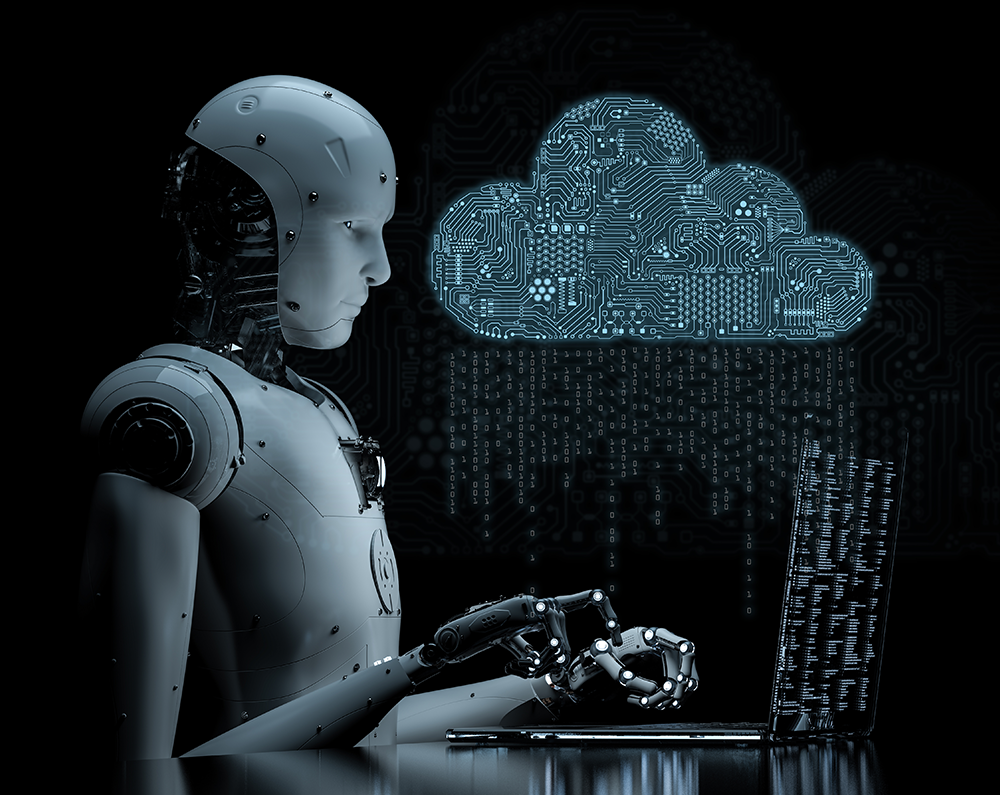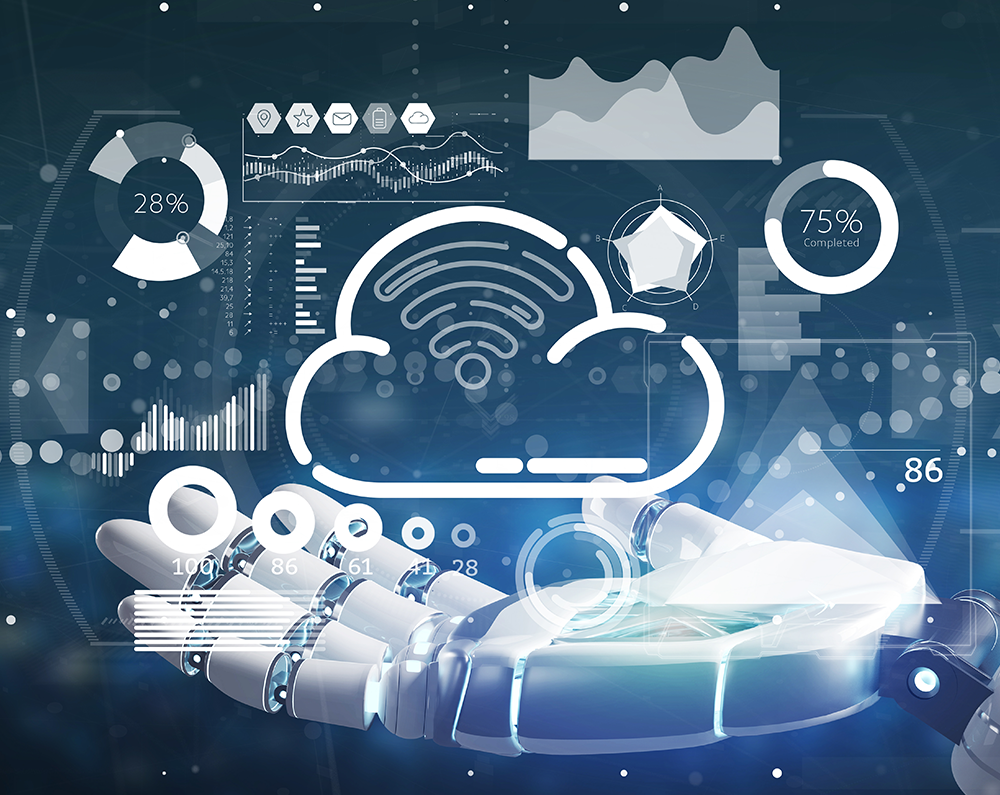The industry is experiencing a profound transformation with the emergence of Agentic AI and Generative AI technologies. Advanced technologies are revolutionizing production processes to the next step, revolutionizing decision-making, and leading to innovation in AI in manufacturing. With self-directed goal-setting and problem-solving, Agentic AI transforms predictive maintenance, smart factory management, and supply chain optimization.
While that happens, Generative AI is taking product design, quality control, and production planning to new frontiers. Adding AI and manufacturing isn’t just augmenting your level of operational effectiveness but also allowing you to remain responsive to changes in the market and create even more tailored goods. This interface can potentially free up unprecedented economic value and bring unprecedented growth.
As you’re assessing your AI strategy, ask yourself these important questions:
Factory AI enables you to make informed decisions by analyzing data in real time. Digital twins build on this by modeling production scenarios, allowing you to experiment with outcomes and hone strategies before implementation. This minimizes risks and maximizes operations, allowing your manufacturing processes to operate at optimal levels.
AI in manufacturing speeds up production by automating tasks, eliminating errors, and simplifying processes. Integrated systems maximize processes from raw materials through finished products, reducing manual intervention and allowing “hands-off” manufacturing—increasing efficiency and productivity.
You’re constantly looking for ways to improve operations and save costs. And that’s where AI and manufacturing come in. You can realize significant cost savings with automation, predictive analytics, and improved quality control. AI lowers labor and maintenance costs, reduces waste, and optimizes energy usage—ultimately creating a leaner, cost-efficient production setup that breeds business success.
Industrial companies using AI can leverage tools like generative design, digital twins, and faster prototyping to drive innovation. These technologies reduce time-to-market and enable advanced product designs, helping companies stay competitive in a rapidly changing industry.
Adopting manufacturing and AI for top leadership can also result in more sustainable operations. AI enables ecologically conscious practices through better resource allocation, less energy use, and reduced waste. Moreover, parts with self-diagnostic sensors also decrease maintenance demand, further reducing your operations’ environmental impact.
AI for manufacturing is revolutionizing operations with intelligence, efficiency, and flexibility. Key use cases include:
AI is transforming energy management with sophisticated applications. AI-powered systems maximize energy use by analyzing usage patterns, forecasting demand, and adjusting in real time. These systems also interface with IoT devices to track energy consumption, detect inefficiencies, and control HVAC systems depending on occupancy and machine usage. Using machine learning algorithms, manufacturing AI can predict energy requirements, schedule production for maximum effectiveness, and lower costs while minimizing environmental footprint. Technology is becoming a key differentiator in gaining efficiency in energy throughout the manufacturing industry.
As you further improve your operations, AI for manufacturing is crucial in helping us increase your predictive capabilities. Through the analysis of sensor data and the use of digital twins to evaluate equipment behavior, you can identify issues beforehand, allowing you to take measures early on and consequently cut unplanned downtime to nearly zero—just like automobile manufacturers have been able to with assembly-line robots, with serious cost savings and streamlined production schedules.
Cobots are revolutionizing automation by gently combining human creativity with machine accuracy. Cobots are designed to work with human workers and enhance productivity, safety, and efficiency in various industries. In the production of electronics, for example, cobots do a great job in quality control situations like accurate component placement, providing consistent precision, and minimizing errors in assembly. Such coexistence between people and cobots accelerates operational workflows and ensures repetitive and labor-intensive tasks so that workers can concentrate on tasks of higher value.
As a COO, you might be curious to know how artificial intelligence in manufacturing will change your operation. Generative design technology driven by AI means you can play through an incredible number of different design possibilities with parameters such as materials and production limitations. It speeds up your design cycle through the ability to rapidly test various iterations. You’re already witnessing this technology in use across sectors such as aerospace and automotive, where businesses employ it to design optimized components. Though it’s well-established, its full potential is yet to be discovered within the changing world of contemporary manufacturing.
You’re in a good position to use artificial intelligence in manufacturing to provide mass customization, customizing products to suit the unique tastes of individual customers without compromising production speed. Incorporating AI into your design allows you to rapidly respond to changing designs based on consumer feedback. For example, textile manufacturers employ AI algorithms to customize products so customers can select designs that suit their tastes. This adaptability improves customer interaction and satisfaction.
Imagine a future where you can manufacture anywhere, anytime, with the “factory in a box” idea. With AI in the manufacturing industry, IoT sensors, and real-time data analytics, these modular facilities allow for flexible, localized manufacturing. By bridging manufacturing with demand, you can reduce logistics expenses and quickly respond to shifting requirements. The electronics, automotive, and pharmaceutical industries are already investigating this model. The full promise of this idea will be revealed when innovations in automation, modularity, and data integration create a scalable, mass-market solution.
Envision transforming your supply chain using AI in manufacturing examples that prove its revolutionary impact. By analyzing massive amounts of data, AI forecasts demand, optimizes stock and rationalizes logistics. Combined with a digital twin, AI constructs a virtual supply chain model that allows you to model and forecast real-time disruptions. Machine learning improves forecasting demand and automates procurement processes so you have the necessary materials at the right time. For example, food manufacturers use AI to predict seasonal fluctuations in demand, maximizing resources and reducing waste. This ability dramatically improves operational effectiveness and responsiveness to changing market conditions.
You can maximize your workforce with AI use in machine learning and manufacturing. You can generate schedules that enhance productivity and efficiency through employee data analysis. These systems determine workload, performance, and skill sets to distribute skilled laborers where they’re most needed. This strategic practice enables you to manage your labor force effectively, ensuring your team performs optimally.
Think about how AI is used in manufacturing to transform the handling of documents. Generative AI revolutionizes this process by efficiently searching and summarizing vast amounts of documents, e.g., technical designs and reports. Rather than sorting through manually, AI recognizes patterns and summarizes the essence, accelerating retrieval and displaying entangled information in precise, understandable forms. Time is saved, and decision-making is improved by making vital information readily accessible.
What about making your customers more powerful with generative AI in manufacturing to reframe their product discovery process? When they can’t remember specific names or codes, generative AI jumps in and enables them to tell what they want regarding desired features. This is input into precise search queries to find exactly what they want. Additionally, generative AI can generate detailed product descriptions using semantic understanding to refine the search. This simplifies the customer experience and increases satisfaction by delivering targeted results that meet their intent.
Integrating AI in manufacturing has many challenges, such as:
Deterministic AI-driven Operational Risks: Manufacturing deterministic AI systems, which are frequently rule-based and deterministic, introduce operational hazards in dealing with complex or dynamic situations. Such systems can become incapable of adapting to unexpected variables, resulting in process errors in quality control or equipment maintenance. Rigidity in such systems can cause expensive delays in production or create safety risks. To counteract these risks, organizations must implement firm contingency plans and incorporate adaptive AI and deterministic models to enhance resilience and agility.
Data Quality & Accessibility Challenges: In AI-driven manufacturing, high-quality data is crucial yet often lacking. This is particularly evident in quality control cases, real-life examples, where incomplete defect data can compromise model accuracy. For instance, BMW uses AI to inspect welds, and Siemens validates components to reduce defects. Addressing data gaps is key to unlocking AI’s potential in quality control, enabling precise defect detection and predictive analytics to enhance product quality and efficiency.
AI Implementation Expenses: When considering adopting AI solutions in manufacturing, it’s essential to recognize that a huge initial capital investment is involved. That might be a deterrent, especially for small businesses with constrained budgets. Yet, the long-term value of AI through improved efficiency, increased product quality, and predictive maintenance can more than justify the initial investment. Through planning strategically and rolling out AI technologies sequentially, you can construct a road map that works best for your company objectives and the company’s capacity for financing to achieve an effortless transition to AI-powered manufacturing.
Shortage of Skill: As you start incorporating machine learning in manufacturing, you will likely face a complex challenge: the lack of professionals understanding AI, data science, and machine learning. This shortage of skills may impair your capacity to tap into the full potential of AI without increasing workforce skills through development. To bridge the gap, explore upskilling your current workforce or recruiting new employees with specialized abilities. In this way, you’ll be able to make the most of AI and machine learning in your manufacturing business and generate innovation and competitiveness.
Cybersecurity Challenges: As you navigate artificial intelligence in the manufacturing market, embedding AI within your operations can significantly enhance digital connectivity. However, more connectivity also opens up your systems to more opportunities for cyberattacks. To keep your manufacturing systems secure, it’s vital to have better cybersecurity in place. By placing security protocols on top, you can guard your infrastructure from vulnerability and realize the advantages of AI integration without risking your digital security.
Korcomptenz is a Microsoft Gold Partner, Microsoft AI Cloud Partner, and Microsoft Fabric Partner with specialization in Azure Analytics. We have We have deep experience in providing innovative AI in manufacturing and AI in factory automation solutions. Our “AI-First” strategy enables organizations to realize measurable business value and gain a competitive advantage through enhanced analytics, innovative data cloud solutions, and generative AI capabilities.
We specialize in embedding AI copilots within business analytics to help organizations scale self-service Generative BI enterprise-wide. Our tested methods include sophisticated data modeling, careful project planning, and thorough system evaluations to guarantee perfect execution. Stringent quality control procedures ensure accuracy, reliability, and actionable insights throughout the project phases.
AI-Driven Innovation: Leveraging AI in manufacturing to streamline operations, save costs, and improve productivity using predictive insights and automation.
End-to-End Solutions: From supply chain optimization to predictive maintenance, we provide customized solutions that integrate harmoniously with your current systems.
AI in manufacturing highlights its central role in transforming different areas of the sector. From predictive maintenance to supply chain optimization, AI has brought tremendous gains in efficiency, accuracy, and cost-effectiveness in manufacturing processes.








